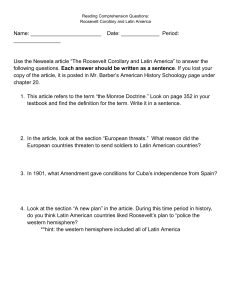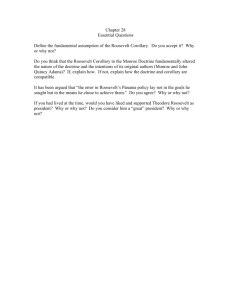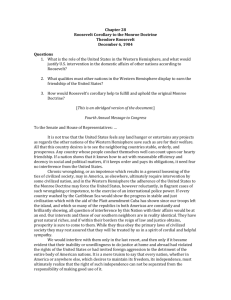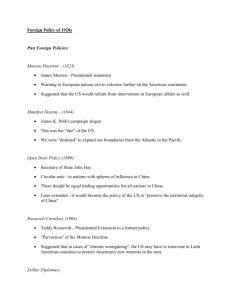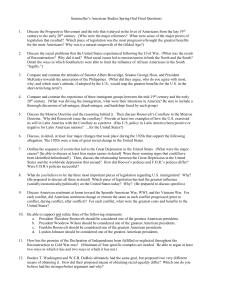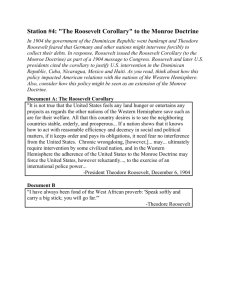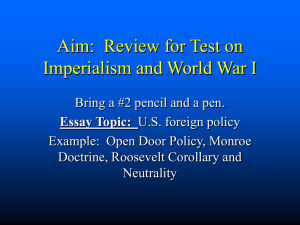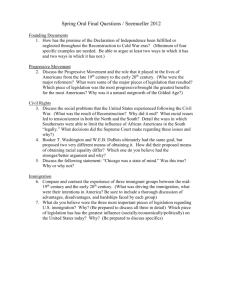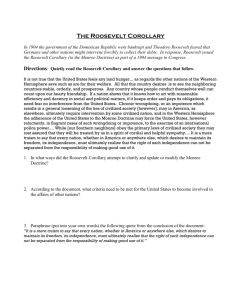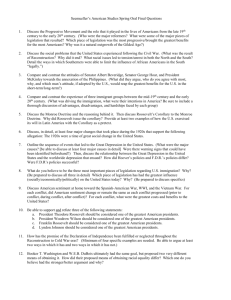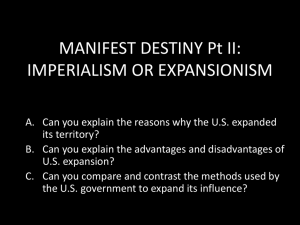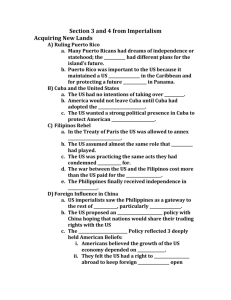The Roosevelt Corollary and Latin America
advertisement
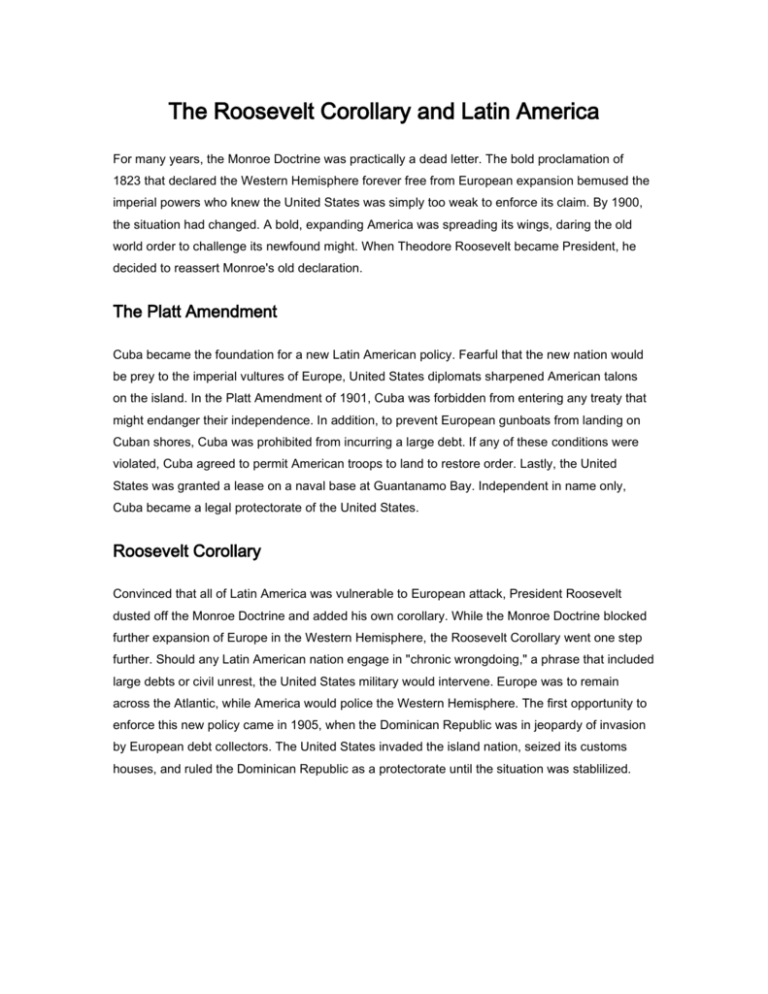
The Roosevelt Corollary and Latin America For many years, the Monroe Doctrine was practically a dead letter. The bold proclamation of 1823 that declared the Western Hemisphere forever free from European expansion bemused the imperial powers who knew the United States was simply too weak to enforce its claim. By 1900, the situation had changed. A bold, expanding America was spreading its wings, daring the old world order to challenge its newfound might. When Theodore Roosevelt became President, he decided to reassert Monroe's old declaration. The Platt Amendment Cuba became the foundation for a new Latin American policy. Fearful that the new nation would be prey to the imperial vultures of Europe, United States diplomats sharpened American talons on the island. In the Platt Amendment of 1901, Cuba was forbidden from entering any treaty that might endanger their independence. In addition, to prevent European gunboats from landing on Cuban shores, Cuba was prohibited from incurring a large debt. If any of these conditions were violated, Cuba agreed to permit American troops to land to restore order. Lastly, the United States was granted a lease on a naval base at Guantanamo Bay. Independent in name only, Cuba became a legal protectorate of the United States. Roosevelt Corollary Convinced that all of Latin America was vulnerable to European attack, President Roosevelt dusted off the Monroe Doctrine and added his own corollary. While the Monroe Doctrine blocked further expansion of Europe in the Western Hemisphere, the Roosevelt Corollary went one step further. Should any Latin American nation engage in "chronic wrongdoing," a phrase that included large debts or civil unrest, the United States military would intervene. Europe was to remain across the Atlantic, while America would police the Western Hemisphere. The first opportunity to enforce this new policy came in 1905, when the Dominican Republic was in jeopardy of invasion by European debt collectors. The United States invaded the island nation, seized its customs houses, and ruled the Dominican Republic as a protectorate until the situation was stablilized. A Big Stick The effects of the new policy were enormous. Teddy Roosevelt had a motto: "Speak softly and carry a big stick." To Roosevelt, the big stick was the new American navy. By remaining firm in resolve and possessing the naval might to back its interests, the United States could simultaneously defend its territory and avoid war. Latin Americans did not look upon the corollary favorably. They resented U.S. involvement as Yankee imperialism, and animosity against their large neighbor to the North grew dramatically. By the end of the 20th century, the United States would send troops of invasion to Latin America over 35 times, establishing an undisputed sphere of influence throughout the hemisphere.
